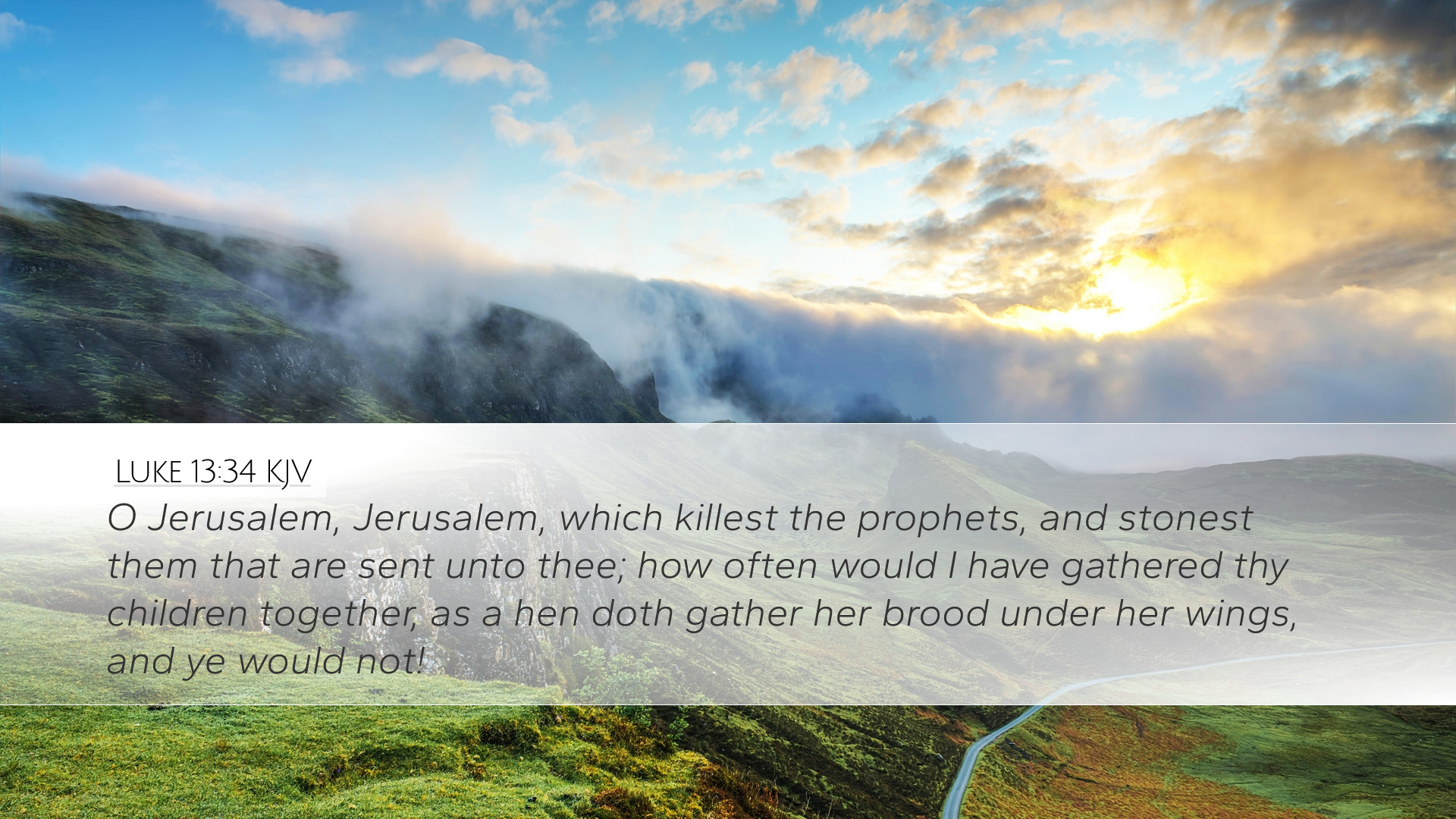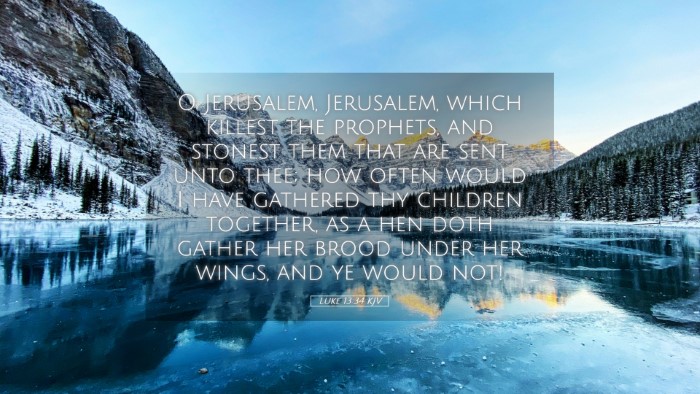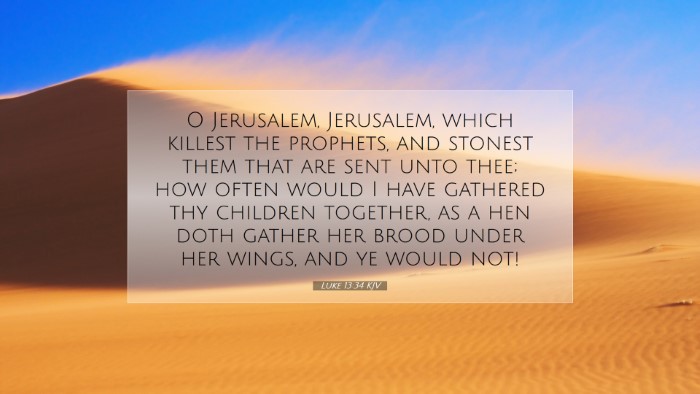Luke 13:34 - A Summary Commentary
In this poignant verse, Jesus expresses a deep lament over Jerusalem, reflecting His heart towards the City of Peace that has so often rejected its Messiah. The context, tone, and implications of this verse serve as a significant foundation for understanding God’s heart for His people and the nature of divine compassion.
Text of Luke 13:34
"O Jerusalem, Jerusalem, which killest the prophets, and stonest them that are sent unto thee; how often would I have gathered thy children together, as a hen doth gather her brood under her wings, and ye would not!"
Contextual Background
This verse is situated in a larger discourse that anticipates the rejection of Jesus and foreshadows Jerusalem’s coming judgment. It appears as Jesus is teaching and traveling towards Jerusalem, where He will ultimately face crucifixion. His lamentation reveals a heartfelt desire for the inhabitants of Jerusalem to repent and be saved.
The Lament of Jesus
Jesus’ cry, “O Jerusalem, Jerusalem,” exhibits an intense emotion, a double call that signifies urgency and sorrow. This repetition highlights not only His grief over the city but also the many individuals within it whom He has endeavored to reach. Both Matthew Henry and Adam Clarke note that this lament serves as a vivid illustration of Christ’s compassionate nature, as He expresses profound sorrow for those who persist in rejecting His message.
Symbolism of Gathering
The image of a hen gathering her chicks is particularly striking. Albert Barnes emphasizes that this metaphor illustrates both the tenderness of Jesus’ character and His protective desire for the people of Israel. Just as a hen shields her young from danger, Christ yearns to shield His people from the impending destruction that follows their rejection of Him. This imagery conveys a deep maternal instinct, underscoring God’s desire to nurture and protect His followers.
Rejection of Prophets
Jesus states that Jerusalem “kills the prophets” and “stonest them that are sent unto thee.” This statement serves as a historical indictment of Jerusalem’s recurring pattern of rejecting God’s messengers. Matthew Henry elaborates that this reflects a broader truth about human nature: the tendency to turn away from those who bring uncomfortable truths. It illustrates that rejection of God often comes with a cost—spiritual blindness that leads to destruction.
Divine Desire vs. Human Will
The phrase “how often would I have gathered thy children together” reveals God’s persistent desire for communion with humankind. Adam Clarke interprets this as a profound insight into the divine initiative in salvation: God actively seeks those who are lost. However, this desire is met with human resistance, illustrated in the concluding phrase, “and ye would not.” The tension between divine longing and human refusal is palpable throughout Scripture, and this verse captures it with poignant clarity.
Theological Reflections
This lament holds serious theological implications regarding God’s relationship with His people. The juxtaposition of His desire to save against the reality of human unwillingness presents a paradox that challenges theological perspectives on predestination, free will, and the nature of divine grace. Albert Barnes discusses how this passage showcases divine grace’s richness while simultaneously affirming human responsibility to respond to that grace.
- Divine Initiative: God actively seeks to save those who are lost.
- Human Responsibility: Individuals must respond to God’s call.
- The Nature of God: God’s compassion is profound and persistent.
Application for Today
For pastors, students, theologians, and Bible scholars, Luke 13:34 serves as a focal point for reflecting on issues of evangelism, spiritual hardened, and the nature of God’s love. The warning inherent in Jesus’ lament speaks clearly to the modern church: the importance of genuine outreach and heartfelt ministry. The challenge remains to embrace God’s desire to see all come to repentance while recognizing the reality of resistance.
Call to Action
Believers today are called to embody the character of Christ in showing compassion and urgency in sharing the Gospel message. Matthew Henry encourages readers to consider their own responses to God’s grace and to actively engage with those who may be spiritually indifferent or resistant. This verse serves as both a reminder and a challenge to embrace a posture of openness towards the divine call to repentance.
Conclusion
Luke 13:34 encapsulates a crucial moment in Jesus’ ministry, revealing His heart for Jerusalem and, by extension, all humanity. The combination of sorrow, desire, and rejection highlights God’s passionate pursuit of His people. In understanding this lament, believers are reminded of the steadfastness of God’s love, the seriousness of human choice, and the urgency of the proclamation of the Gospel.


